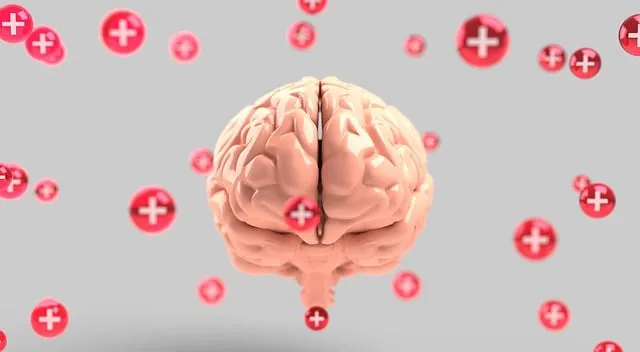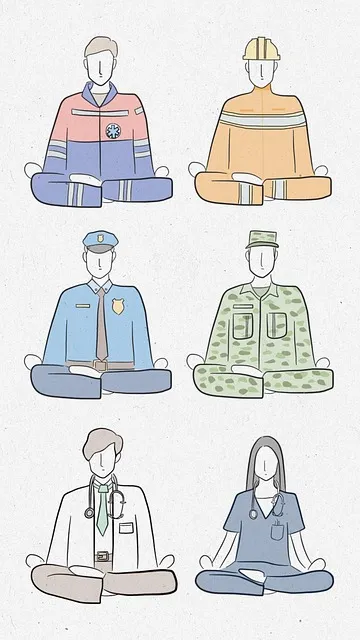Social skills are a key component of mental well-being, especially for those seeking support through Kaiser Permanente mental health Castle Rock. Kaiser Permanente offers comprehensive programs that destigmatize mental health and empower patients with tools like mood management workshops. Their innovative community-based program focuses on fostering social skills through empathy building and mindfulness meditation, improving stress management and emotional regulation. Many individuals with mental health conditions struggle with social anxieties, which can be overcome through education, risk assessment, cognitive-behavioral therapy, and social skills training. These programs help clients manage emotional triggers and foster meaningful connections, ultimately contributing to improved mental health outcomes.
Social skills training is a powerful tool in supporting individuals with mental health conditions, fostering better engagement and overall well-being. This article delves into the significance of social interactions for mental health, highlighting initiatives like those by Kaiser Permanente and community-based programs such as Castle Rock’s approach. We explore strategies to identify and overcome social anxieties, offering practical solutions for enhancing social connections and improving lives. Learn how these efforts contribute to a holistic mental health care landscape, including the role of organizations like Kaiser Permanente and innovative community projects in places like Castle Rock.
- Understanding the Importance of Social Skills for Mental Health
- The Role of Kaiser Permanente in Mental Health Support
- Castle Rock: A Community-Based Approach to Training
- Identifying and Overcoming Common Social Anxieties
- Practical Strategies for Enhancing Social Interaction and Well-being
Understanding the Importance of Social Skills for Mental Health

Social skills are a cornerstone of mental well-being, often overlooked yet profoundly impactful. For individuals navigating mental health conditions through organizations like Kaiser Permanente mental health Castle Rock, developing and enhancing these skills can be transformative. Effective communication, empathy, and social interaction not only support recovery but also foster a sense of belonging and self-worth.
Emotional Intelligence and inner strength development play a pivotal role in this process. Through self-awareness exercises, individuals learn to recognize and manage their emotions, fostering healthier interactions with others. This, in turn, strengthens their support network and enhances coping mechanisms, ultimately contributing to improved mental health outcomes.
The Role of Kaiser Permanente in Mental Health Support

Kaiser Permanente, a renowned healthcare organization, plays a pivotal role in supporting mental health initiatives, particularly in areas like Castle Rock. They offer a range of services tailored to address various mental health conditions through their comprehensive programs. The focus is on both individual care and community outreach, ensuring that residents have access to specialized support.
Their Mental Health Education Programs Design involves creating structured learning experiences for individuals and professionals alike. This includes workshops on mood management, risk management, and planning for optimal mental health. By investing in such initiatives, Kaiser Permanente aims to reduce the stigma surrounding mental health while enhancing the tools available to both patients and healthcare providers in Castle Rock and beyond.
Castle Rock: A Community-Based Approach to Training

In communities like Castle Rock, where mental health support is often a priority, innovative approaches to training are emerging. One such initiative, spearheaded by Kaiser Permanente mental health professionals, focuses on fostering social skills as a community-based strategy. This program recognizes that effective communication and emotional connection are vital components of recovery for many individuals navigating mental health conditions. By bringing these teachings into the heart of the community, they aim to reduce stigma and increase support networks.
The training involves interactive workshops focused on empathy building strategies and mindfulness meditation techniques. These tools empower participants with better stress management, burnout prevention strategies for healthcare providers, and improved emotional regulation—all essential aspects of holistic mental wellness. The community-centric approach ensures that individuals not only gain valuable skills but also feel a sense of belonging and understanding, which are crucial in supporting long-term mental health recovery.
Identifying and Overcoming Common Social Anxieties

Many individuals with mental health conditions, such as those managed by Kaiser Permanente mental health Castle Rock, face social anxieties that can significantly impact their daily lives. Identifying and addressing these fears is a crucial step in enhancing social interactions and overall well-being. Common social anxieties include public speaking, meeting new people, or engaging in group settings, which may stem from past traumatic experiences or negative self-perception.
Overcoming these challenges often involves a combination of strategies. Education plays a vital role in raising public awareness campaigns about mental health, helping to destigmatize such fears. Risk assessment for mental health professionals can aid in recognizing and understanding specific triggers, allowing for personalized interventions. Confidence-boosting techniques, like cognitive-behavioral therapy, can empower individuals to manage anxiety symptoms, fostering more meaningful social connections.
Practical Strategies for Enhancing Social Interaction and Well-being

Social skills training plays a pivotal role in enhancing the well-being of individuals managing mental health conditions. For instance, programs offered by organizations like Kaiser Permanente mental health Castle Rock provide practical strategies to navigate social interactions with ease. These sessions teach participants how to recognize and manage emotional triggers, fostering a sense of calm during potentially stressful social situations. By mastering techniques for emotional regulation, individuals can build resilience and improve their ability to connect with others.
Additionally, promoting positive thinking is integrated into these training programs. Through exercises and discussions, clients learn to challenge negative thought patterns and replace them with more constructive ones. This shift in perspective empowers them to engage socially without fear of judgment or rejection. Moreover, mental health professionals are trained in risk assessment during these sessions, ensuring they can identify signs of distress in themselves and others, thereby facilitating prompt interventions and better outcomes for all involved.
Social skills training is a powerful tool for improving mental well-being, especially in communities like Castle Rock where accessible support from healthcare providers like Kaiser Permanente plays a pivotal role. By addressing common social anxieties and implementing practical strategies, individuals with mental health conditions can navigate social interactions more confidently. This holistic approach to care not only enhances quality of life but also fosters a sense of community engagement, ultimately contributing to the overall resilience and wellness of residents in Castle Rock and beyond.






